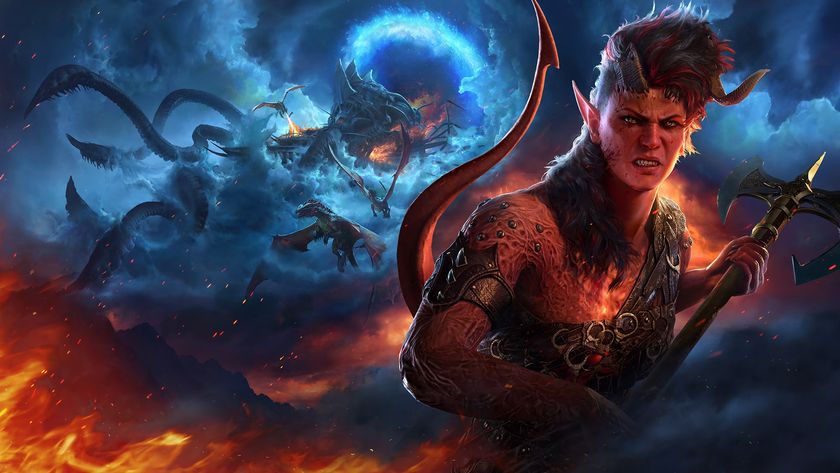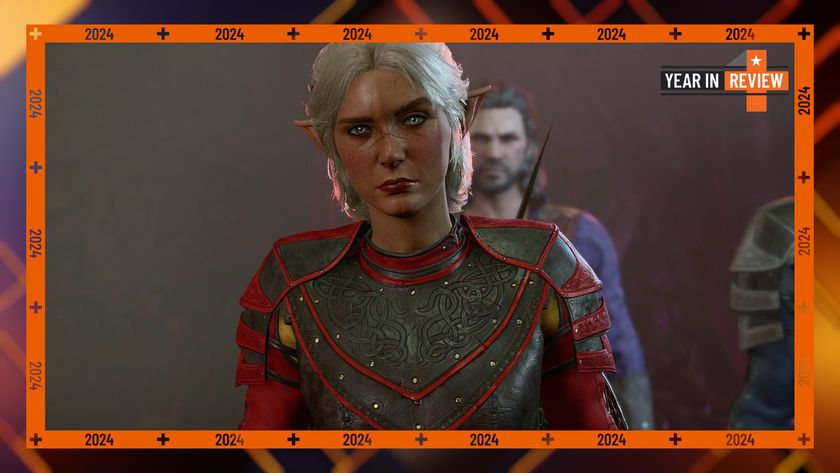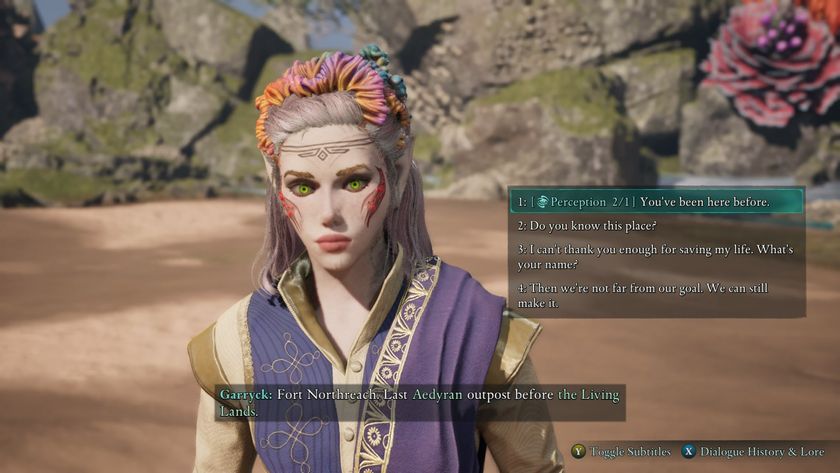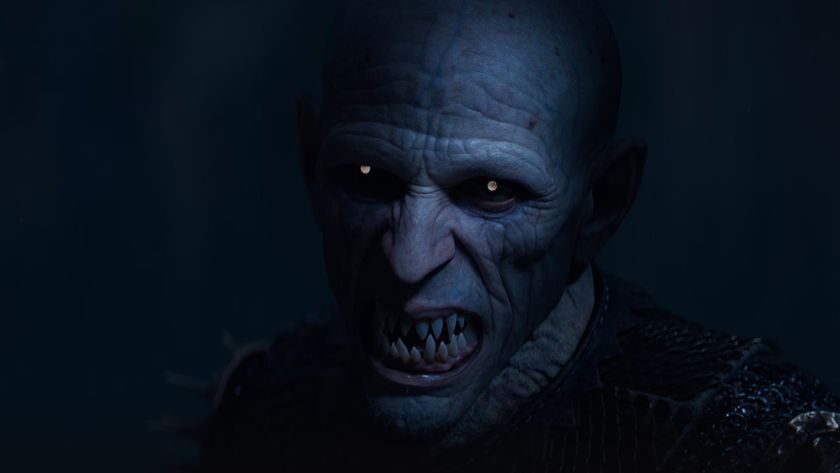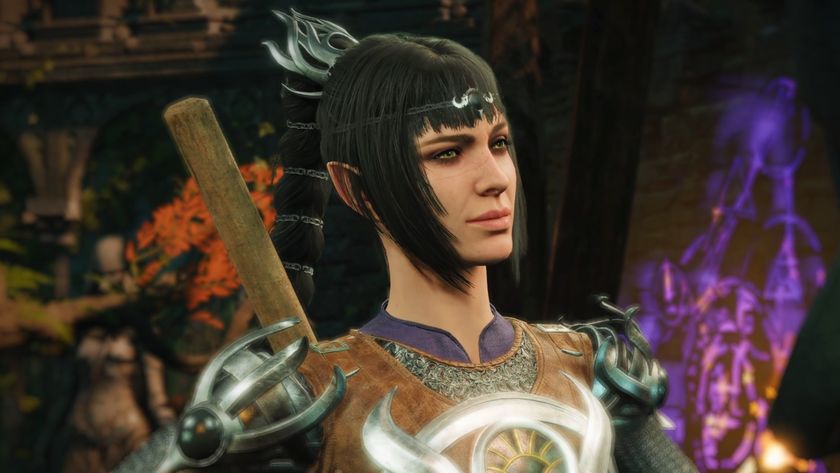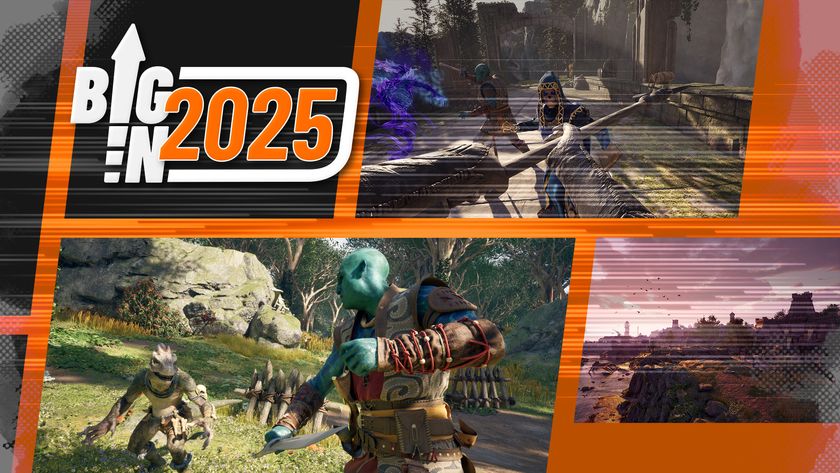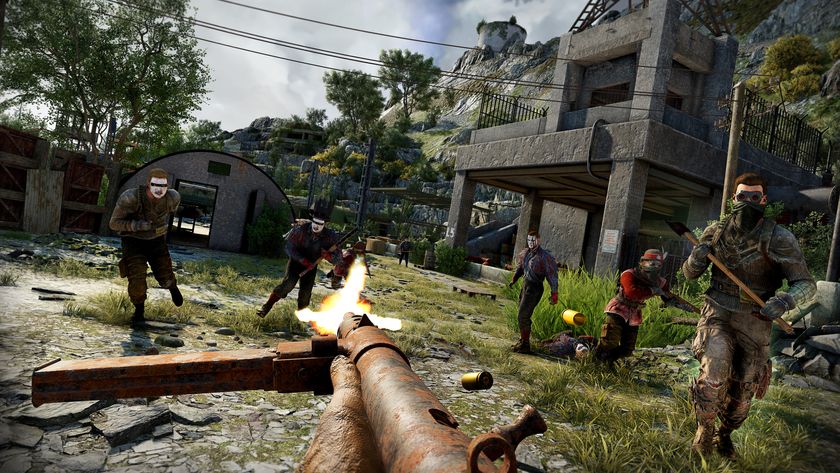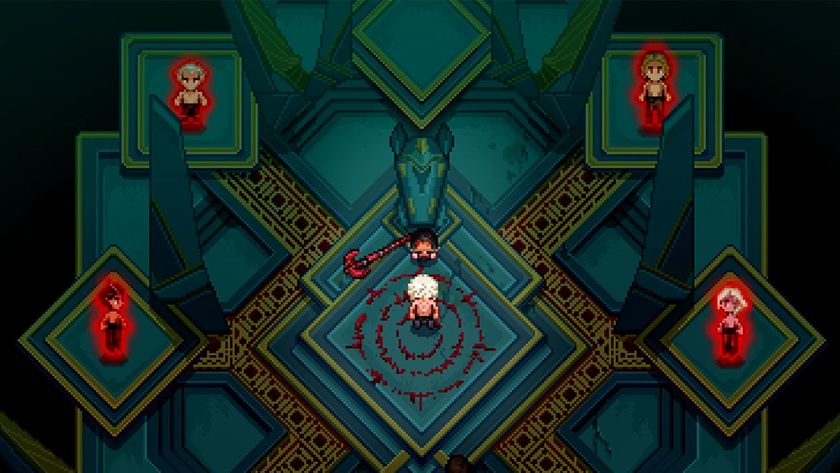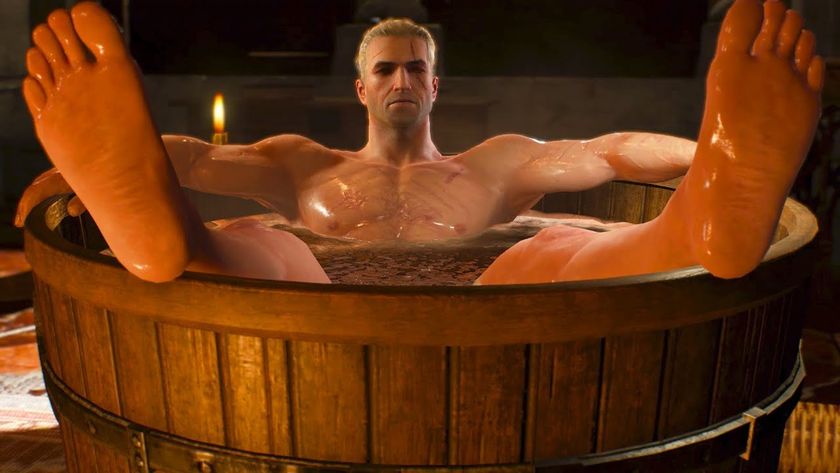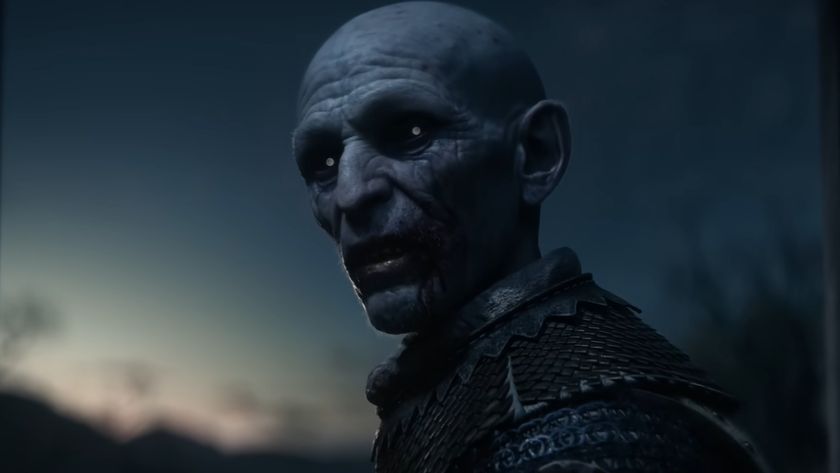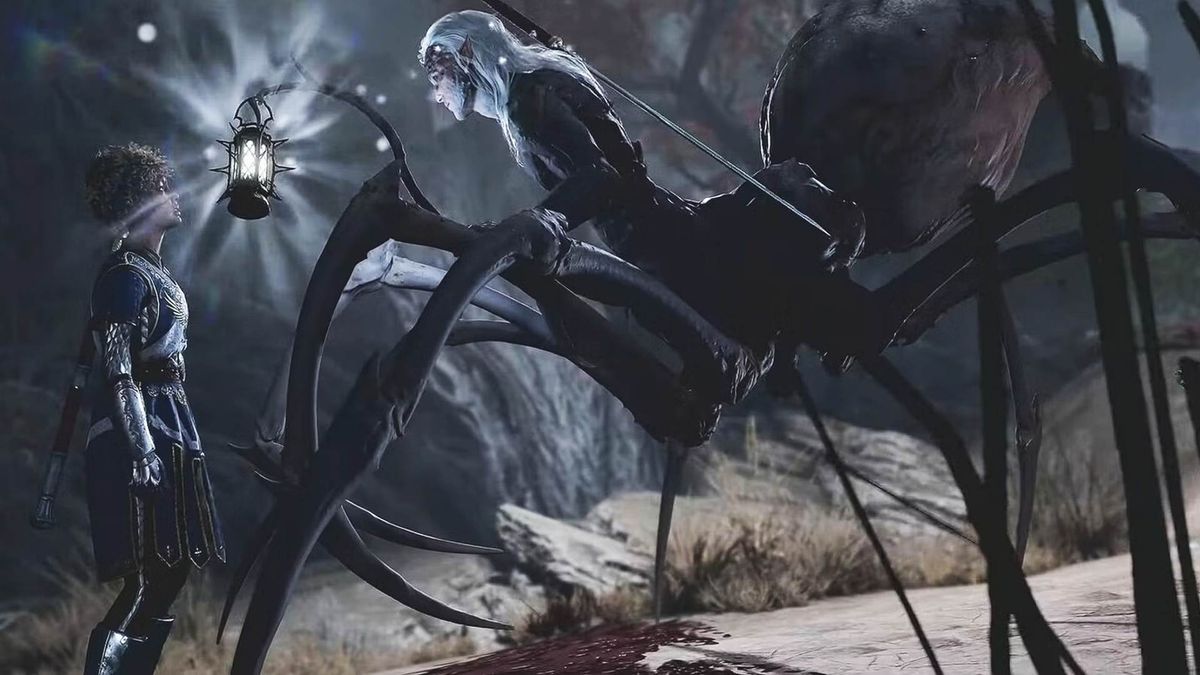
17,000. That's how many permutations of Baldur's Gate 3's ending you might come across, the result of hundreds of choices across dozens of hours of gameplay. Those constantly-branching narrative pathways are a cornerstone of tabletop D&D, but bringing them to life in a video game seems like an impossible task.
According to Baldur's Gate 3 writer Adam Smith, however, that perception comes from a common misconception of the idea of a branching narrative. "It's not that you start at point A, and then you keep branching and branching and branching," he tells me, his hands tracing an arboreal outline in the air between us. "That's often how people think of it, but the problem with that would be that if I make a choice, then I branch over here, and suddenly I'm over here and I can't get back [to the trunk]."
That reality would be useless for a player, who might inadvertently find themselves out on a narrative limb with no way to return to the main story. Any human Dungeon Master could improvise a way back, but the more prescriptive storytelling of a video game means that's not really possible. So instead, the narrative of Baldur's Gate 3 "is more like this big spiderweb - the end of the game is [the centre], and the start of the game is [the outer edge]. So you're always heading towards the same point, and what happens when you get there is very different. But it interweaves, so you're kind of dancing between plots."
What tangled webs…
Smith and game director Sven Vincke demonstrated those interweaving plots in a recent livestream, showing how two stories ran perpendicular to each other, allowing a player the chance to jump from one thread to another, should the mood take them. Central to that leap is a character called Jaheira, a face that long-time Baldur's Gate fans might remember from the earliest games in the series.
Smith says that Jaheira is a perfect example of the way Baldur's Gate 3's narrative threads weave together; "She's pretty neutral. Her morality is quite flexible. She's a good person, but she's willing to do bad things for the right outcomes. And at the very moment you meet her, you can be friendly because of the things you've done, you can be an enemy because of the things you've done, or you can be pretty much in the middle. And when we first started building that, the temptation was always that she judges you, but she doesn't, because she doesn't know [what you've done in the past]."
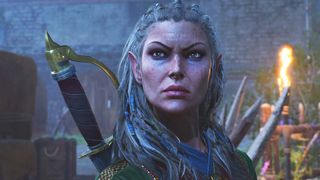
"And this is the big secret, right? People only know what you tell them." Baldur's Gate itself happens to have a way to subvert your view of yourself thanks to its in-game newspapers. Arrive in the city, and print media will probably have beaten you there, building up your reputation based on the sometimes-salacious reporting of the local journalists. But for much of the game, you can simply lie to people about the atrocities you may or may not have committed. Unfortunately, "that's where it gets really complicated. Because suddenly all these different choices I made, they're all building up." Smith says his favourite way to play is "pragmatic evil," where "you find that you've managed to manipulate a lot of people, and nobody actually knows how bad you are."
Oh, you're EVIL evil
As much as Larian has planned for those threads to cross over, Smith notes that sometimes, getting someone back to the critical path is easier said than done. "It's really hard. If a character gets killed during combat that you didn't even want them to be involved in, they're not available anymore. You can speak with the corpse, you can get some information from them, but they're just gone. Maybe you never even got a chance to talk to them."
Sign up to the 12DOVE Newsletter
Weekly digests, tales from the communities you love, and more
One early playtest saw that fate befall Jaheira herself. Three unfortunate critical hits meant that the character was wiped out before she could even be recruited. Smith points out the potential pitfall of a situation like that - Jaheira is one of the main characters of the game's second act, her existence potentially so critical to the story that many other games wouldn't let her die. We've all had to reset a GTA mission where a story-critical character gets accidentally gunned down, or looked on in disappointment as a leading Skyrim NPC takes a knee after you best them in combat, but that won't happen in Baldur's Gate 3.
Everything you click will cause something to happen. Sometimes it's small, sometimes it's subtle, but it all means something from the very first clicks
"The game reacts, the game can let that happen. You can always pull yourself out of it and get back to the plotline. There's very few points in the game where you can be like 'I don't know what to do next. We try to make sure you always have direction. Even if everything goes to hell, or you decide to just kill everyone, you can pick up the thread and say 'I'm gonna do this next'."
Smith's spider web metaphor means that those '17,000' endings won't actually make for thousands of different endgame states. It's the center of the web that serves as the end of the story, a point offering far less variation from a core narrative than the outer edges might. In reality, the number of true endings will be in the very low double-digits, with thousands of possible variations depending on how you make your way through the game. Indeed, Smith is keen to point out that "we're not going to say this is a world that changes with every choice you make. What we are going to say - and it's true - is that the characters react to every choice you make. Everything you click will cause something to happen. Sometimes it's small, sometimes it's subtle, but it all means something from the very first clicks."
Our Baldur's Gate 3 preview outlines a game that's the closest we've ever come to a full simulation of D&D.

I'm GamesRadar's news editor, working with the team to deliver breaking news from across the industry. I started my journalistic career while getting my degree in English Literature at the University of Warwick, where I also worked as Games Editor on the student newspaper, The Boar. Since then, I've run the news sections at PCGamesN and Kotaku UK, and also regularly contributed to PC Gamer. As you might be able to tell, PC is my platform of choice, so you can regularly find me playing League of Legends or Steam's latest indie hit.
